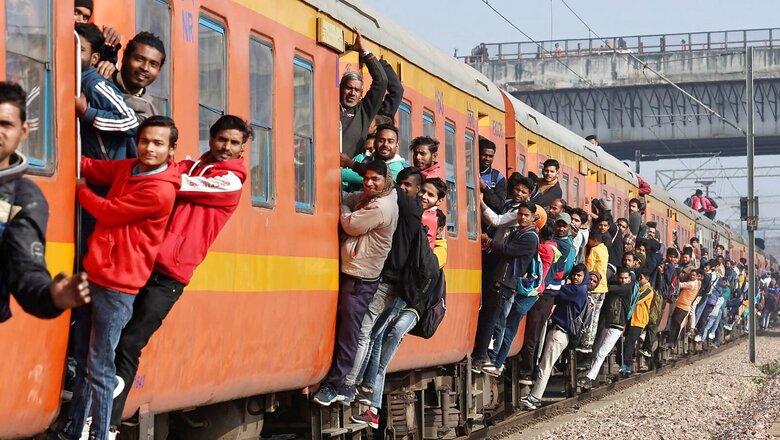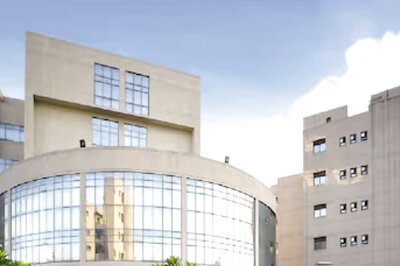
views
The Indian Railways has not made any major increase in passenger fare for the last couple of years, but has been earning significant amounts from its flexi fare scheme, cancellation charges and no concession for senior citizens.
Details of earnings under these categories between 2019 and 2022 showed that the Indian Railways earned more than Rs 10,404 crore from ticket cancellation charges and non-cancellation of waitlisted tickets between 2019 and 2022, making it earnings of Rs 7.12 crore per day on an average. The details were accessed by News18 through an RTI filing.
Further, the national transporter has earned Rs 2,901 crore from its flexi fare scheme launched in 2016 for Rajdhani, Shatabdi and Duronto trains between 2019 and 2022. In 2022, the average per day earning from this scheme was close to Rs 3 crore per day. The earnings from the flexi fare scheme have witnessed a jump of over 20% from 2019, according to the data accessed by News18.
Nominal Fare Hikes
In January 2020, the Railways had “marginally increased” passenger fares ranging from 1 Paise to 4 Paise per kilometre for different classes. Before that, train fares were increased for all classes by 14.2% in June 2014.
Data received through RTI showed that between 2019 and 2022, across all the categories, the total tickets booked reported a jump of around 30%. In 2019, 42 crore tickets were booked by the Railways, generating Rs 36,380 crore. In 2022, this increased to 53.54 crore tickets, generating Rs 47,757 crore.
How Railways is Earning from Flexi Fare Scheme
In the 2022 calendar year, more than 1.94 crore flexi fare tickets were booked, generating Rs 1,071 crore. In 2019, the number of flexi fare tickets booked was 2.04 crore, but the earning was comparatively lower at Rs 885 crore.
The flexi fare scheme was introduced by the Railways in 2016 in premium trains. As per rules, the ticket fare increases by 10% with every 10% of berths sold, subject to a maximum limit. It was launched in order to recover losses and provide passengers with a better travelling experience.
Earnings from Cancellations and Waitlisted Tickets
Ticket cancellation charges and non-cancellation of waitlisted tickets net the Railways around Rs 7 crore per day on average, showed the data.
According to the RTI reply, more than 31 crore tickets were cancelled between 2019 and 2022, bringing in revenue of Rs 6,297 crore, that is Rs 4.31 crore per day on an average. The data also revealed that at least 9.03 crore waitlisted tickets were not cancelled in 2019-2022, allowing the Railways to earn Rs 4,107 crore.
Earnings from waitlisted tickets that were not cancelled jumped around 2.5 times between 2021 and 2022, from Rs 713 crore to Rs 1,604 crore.
No Concessions for Senior Citizens
Another area where the Railways has managed to save is the withdrawal of concession for senior citizens from March 2020.
In the pre-Covid era, the Indian Railways was granting concession in fares of all classes of Mail, Express, Rajdhani, Shatabdi, Jan Shatabdi and Duronto group of trains to senior citizens. Men older than 60 were getting 40% concession, while women older than 58 were granted 50% concession.
In 2019, around 6.2 crore senior citizens opted for the concessions and the Railway Ministry had to spend Rs 1,488 crore on these. In 2020, when the scheme ran for little over two months, the ministry offered concessions to 1.4 crore senior citizens that cost it Rs 346.4 crore.
Read all the Latest India News here



















Comments
0 comment